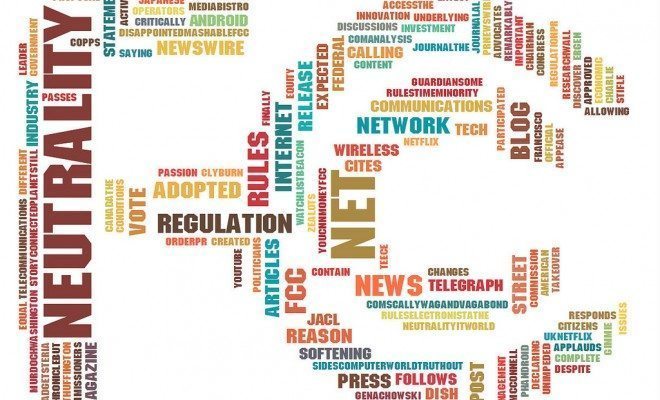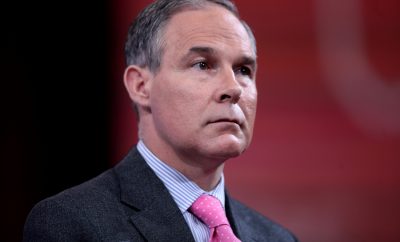
News
The Future of the Internet: What the FCC’s Latest Rules Mean For You
The FCC proposed new rules last week that would allow companies to pay Internet service providers (ISPs) additional money in return for faster web access to customers, creating a so called “Internet fast lane.” If implemented these changes would have significant consequences for the future of neutrality online.
The concept of net neutrality has been under attack recently after the court struck down a 2010 FCC order that supported the equal treatment of online content by ISPs. In addition to the neutrality debate, there have also been several issues with bandwidth, as content-like video have caused traffic burdens for ISPs. The emerging debate hinges on the question of whether or not Internet service providers should be able to control Internet speeds for certain websites.
What is Net Neutrality?
Net neutrality, a term coined by Columbia University professor Tim WU, refers to the idea that content on the Internet should be treated equally without the interference of ISPs. Advocates argue that a level playing field is essential for the Internet to remain free of commercial control.
In 2010, the FCC implemented the Open Internet Order, which prohibited content blocking and unreasonable discrimination in addition to requiring transparency regarding network management. These rules were struck down in January 2014, when the court ruled that although the FCC had the authority to regulate the internet, its existing rules overreached its authority. Since then the commission has been tasked with finding new ways to promote net neutrality, of which the first steps were taken with the Notice of Proposed Rule Making (NPRM) last week.
Back to the New Rules
So what does the FCC’s new proposal mean for the Internet and its consumers? The new rules would allow ISPs to charge for faster Internet access. Advocates of net neutrality argue that these rules mark the abandonment of Internet freedom, as ISPs may now be able to control what websites will reach consumers faster.
The creation of an Internet ‘fast lane’ has far reaching implications for the equality of Internet content. Companies with more money will be able to pay additional sums to Internet service providers in exchange for more bandwidth. As a result, videos from services like Netflix, Youtube, or Hulu (to name a few) would be able to load much faster, given that they are willing to pay the price. Many view this as a serious threat to start-ups and emerging websites, which typically do not have the funds to pay for such services.
Although many may see these new rules as the end of Internet neutrality, current FCC Chairman Tom Wheeler wrote a defense of the new rules in a blog post shortly after their release. Wheeler argues that the new regulations would lead to “the reinstatement of the Open Internet concepts adopted by the Commission in 2010.” He further emphasized the FCC’s ability, under the proposed rules, to prevent “commercially unreasonable” activity.
If passed, the new regulations would again promote transparency, prohibit the blocking of legal content, and prevent ISPs from acting in a commercially unreasonable way. In a second blog post published on April 29, Wheeler further defended the new NPRM, arguing that people still misunderstand the rules and the FCC’s commitment to an open internet. In the blog post, he provides further explanation as to what would be considered not “commercially reasonable.” Such practices include anything that may harm consumers or competition, provide favorable traffic to a company affiliated with the provider, and curbing free speech or civic engagement.
Wheeler contends that the transparency rule will allow the FCC to monitor any abuse, and openly stated that “degrading service in order to create a new ‘fast lane’ would be shut down.” He went on to say that he and the FCC is keeping all options open and may even be willing to regulate using its Title II authority to ensure openness. However, his reasoning to not do so initially because he wanted the rules to be put in place as soon as possible rather than start a legal battle.
These rules would not allow slowing down speed to one website while speeding it up for another, but it will still give broadband providers the ability to negotiate contracts with companies to provide faster services. While this may not slow down the competition, the mere act of allowing certain websites to load faster may still have significant consequences.
What this Means for the Internet
Speed is clearly an important part of the Internet for consumers, and emerging data may suggest that it is essential for businesses as well. There is also a lot of evidence to suggest that the Internet usage has already started to become concentrated around established websites. A paper published in 2010 by Professor Matthew Hindman of George Washington University, found that “the top 300 media sites account for 80 percent of traffic on a typical day, with the top 10 sites receiving 30 percent of all news visits.” The new FCC rules, may further contribute to this phenomena, as wealthier companies are able to pay for a better customer experience. Leaving new websites and those without large sums of money stuck with standard loading times.
To understand just how important loading speed is to a website’s success, check out this infographic created by KISS Metrics.
Before these new rules are put in place, they must go through internal FCC debate, receive a majority vote from the commissioners, and then go through a comment period where companies and individuals can provide their opinions. If approved by the FCC, the full text of the rules will be released after the FCC’s next meeting on May 15.
The exact implications of the new proposal have yet to be seen, but if approved they would mark a notable deviation from the concept that all web traffic must be treated equally. The rules do provide the FCC with the authority to prevent unfair blocking and slowing of content, but understanding the extent to which enforcement will occur is not yet possible.
While several potential implications of these new rules remains to be seen, one thing is for sure: ISPs like Comcast, AT&T, and Verizon stand to make a lot more money.
[The Washington Post] [Wired] [FCC]
—
Kevin Rizzo (@kevinrizzo10)
Featured image courtesy of [Sean Weigold Ferguson via Flickr]








Comments